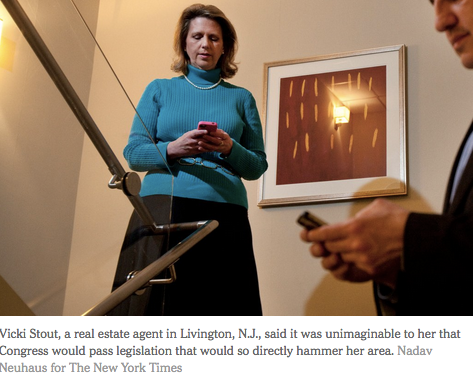WEST CALDWELL, N.J. — Steve Schwartz looks like a voter who might swoon for the Republican tax plan, unveiled last week in Washington. He is a political independent who owns a company that makes windshield wipers, he describes himself as leaning “right on fiscal matters,” and he said he would benefit from the elimination or scaling-back of the estate tax.
But Mr. Schwartz, 72, said he is deeply wary of the House bill. “I’m not happy,” he said, “if they take away New Jersey’s deductions.”
In the dense suburbs of northern New Jersey, where property values are high and local taxes keep climbing, Mr. Schwartz has ample company in his unease. It is in places like West Caldwell, in New Jersey’s 11th Congressional District, where Republicans are facing the most furious internal resistance in their drive to overhauling the tax code — and the greatest political risks if they succeed.
Indeed, Republican proposals to raise revenue by targeting high-tax states dominated by Democrats could endanger Republicans in districts like this one, particularly in states like New Jersey, New York and California, perhaps putting the party’s majority in Congress in peril.




